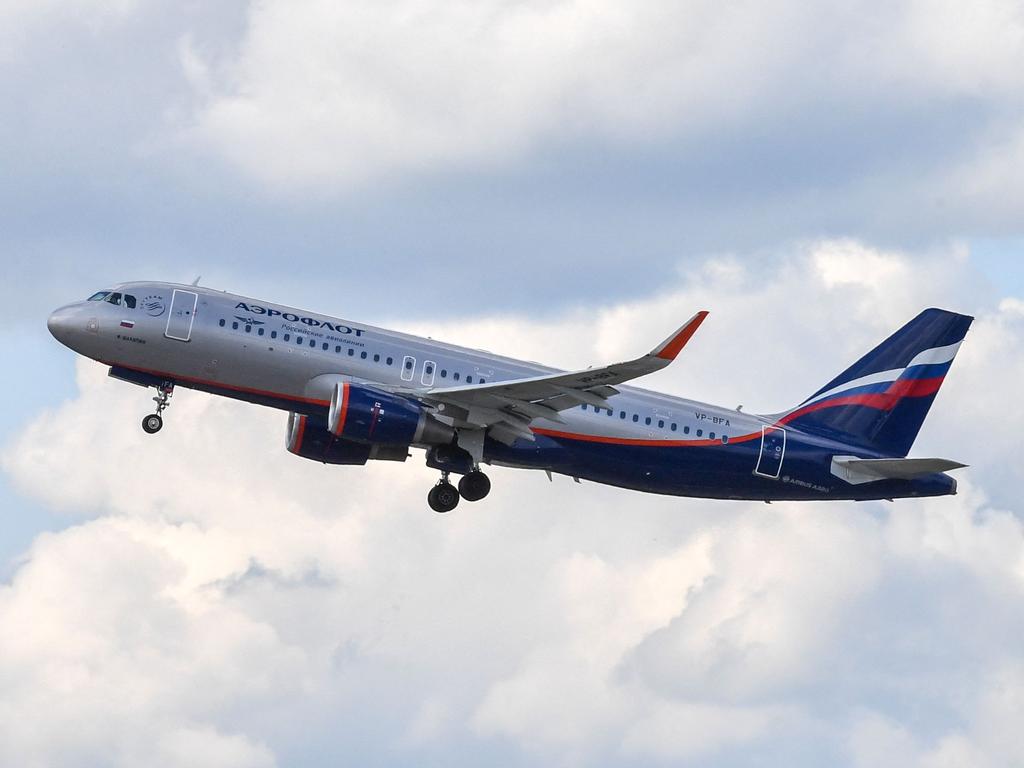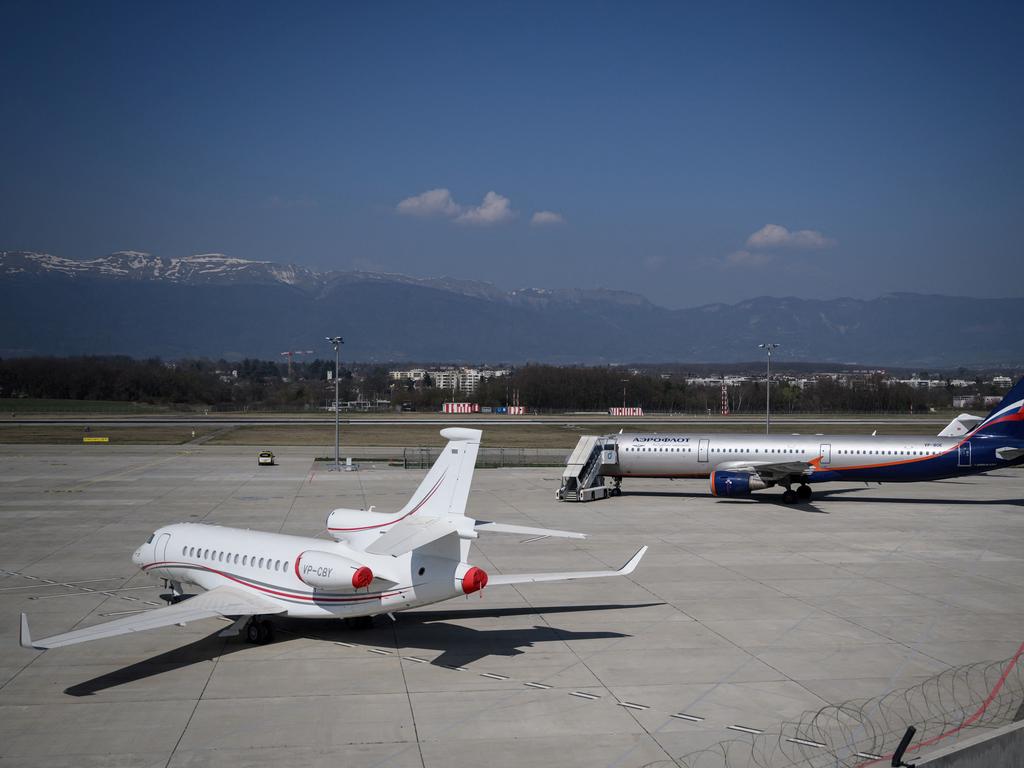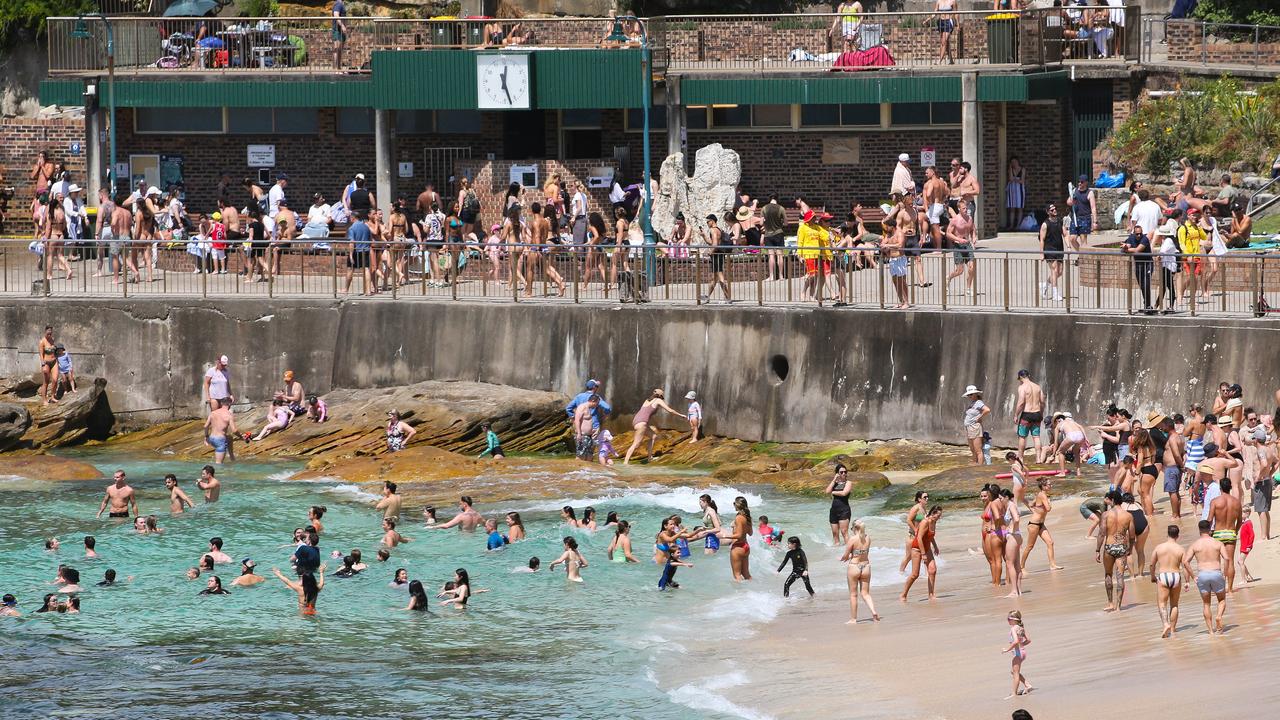Russian airlines running on ‘expired components’ as sanctions wreak havoc on aviation safety
Over 95 million passengers flew on aircraft with potentially faulty equipment, an explosive new leak has confirmed.
![CORRECTION / An Aeroflot Airbus A320 aircraft takes off at Sheremetyevo airport outside Moscow on June 13, 2018. - Russia on February 27, 2022 closed its airspace to flights operated by carriers from Latvia, Lithuania, Estonia and Slovenia in tit-for-tat punitive measures following Moscow's invasion of Ukraine. Britain has banned Russian flagship carrier Aeroflot from flying over the UK. Meanwhile Bulgaria, Poland, the Czech Republic, the Baltics, Germany and Slovenia have closed their airspace to Russian carriers. (Photo by Yuri KADOBNOV / AFP) / “The erroneous mention[s] appearing in the metadata of this photo by Yuri KADOBNOV has been modified in AFP systems in the following manner: [Airbus A320] instead of [Airbus A330]. Please immediately remove the erroneous mention[s] from all your online services and delete it (them) from your servers. If you have been authorized by AFP to distribute it (them) to third parties, please ensure that the same actions are carried out by them. Failure to promptly comply with these instructions will entail liability on your part for any continued or post notification usage. Therefore we thank you very much for all your attention and prompt action. We are sorry for the inconvenience this notification may cause and remain at your disposal for any further information you may require.â€](https://content.api.news/v3/images/bin/43ccce76ec7603f1cc2c997051ab85c4)
New leaks have shone light on how the West’s sanctions on Russia have affected crucial industries following the invasion of Ukraine.
Western nations have continued to push for sanctions on trade in response to the war, which have reportedly made it difficult for Russian companies to purchase spare parts for aircraft maintenance.
The issues with supply have reportedly impacted the nation’s most prominent airlines for over a year, forcing companies to resort to desperate measures to keep their assets in the air.
Despite this, Russian airlines have continued to fly, transporting 95.1 million passengers last year alone.
Inspections by the Transportation Ministry’s agency, Rostransnadzor, have discovered that over 2,000 flights took off with components that had exceeded their operational lifespan.
Additionally, an investigation found that Aeroflot, Russia’s flagship airline, instructed its personnel not to record in-flight malfunctions unless directed by the captain.
The limited availability of spare parts has led Russian airlines to resort to temporary fixes, including using stockpiled components and smuggling in parts from other countries. However, these are short-term solutions, and the planes still require regular maintenance.
In tapes accessed by the publication Kommersant, Rostransnadzor head Viktor Basarguin could be heard admitting sanctions placed on Russia had directly impacted the safety of civilians on commercial flights.
“It is impossible to import a number of specific products. As a consequence, numerous aircraft operations have been performed involving irregularities that directly affect flight safety,” he said in the tape.
“For instance, they have been allowed to operate with expired components. More than 2,000 of these flights have been recorded.”
According to El Pas, former company employees spoke on the condition of anonymity about the crisis, revealing one aircraft captain refused to register a safety because it was deemed “an insignificant problem”.
The airline in question was an Aeroflot flight from the United Arab Emirates that was not carrying the required amount of oxygen cylinders in the event of depressurisation.

Russia has begun plans to replace Boeing and Airbus aircraft with domestic-built models. However, these will likely take at least a decade to implement.
President Vladimir Putin has gone on record blasting the industry for lagging production times, claiming “some companies don’t even have orders for 2023”.
The situation has raised concerns about flight safety, particularly as Russia’s ability to monitor and certify its aircraft has been called into question.
Russia remains a member of the International Civil Aviation Organisation (ICAO), but it was expelled from the governing council in 2022 due to safety concerns.
The country issued its own airworthiness certificates, but this double registration is prohibited by the ICAO. As a result, Russian airlines continue to operate to certain countries where civil aviation authorities turn a blind eye to the situation.
Roman Gusarov, head of the Russian website Aviation Explorer, claimed “extensive engine repairs” had not been carried out for over a year.
“There are some types of maintenance that are not carried out in Russia. For example, extensive engine repairs,” Gurasov told El Pas.
The lack of maintenance capabilities in Russia has led to unconventional practices, including maintenance being carried out in Iran. Furthermore, over 10 per cent of the fleets of Russia’s largest airlines have been grounded for more than three months, potentially indicating cannibalisation of parts from these aircraft for others.

These practices may result in unauthorised modifications that could prevent Russian airlines from operating in European skies once they open up again.
The Russian government‘s plan is to acquire domestically produced aircraft and lease them to the airlines. However, the factories are currently at a standstill, and there is a lack of orders for 2023.
The industry is also facing the challenge of redesigning aircraft to comply with the sanctions. Projects to develop new aircraft, such as the Yakovlev MC-21 and the Sukhoi Superjet 100, are underway but face uncertainties.
Engine development is another major hurdle for Russian aviation, as their current engines fall short of international standards.
The clock is ticking for Russian airlines, with reports suggesting that Superjets may soon be grounded due to a shortage of engine spark plugs caused by the sanctions.




